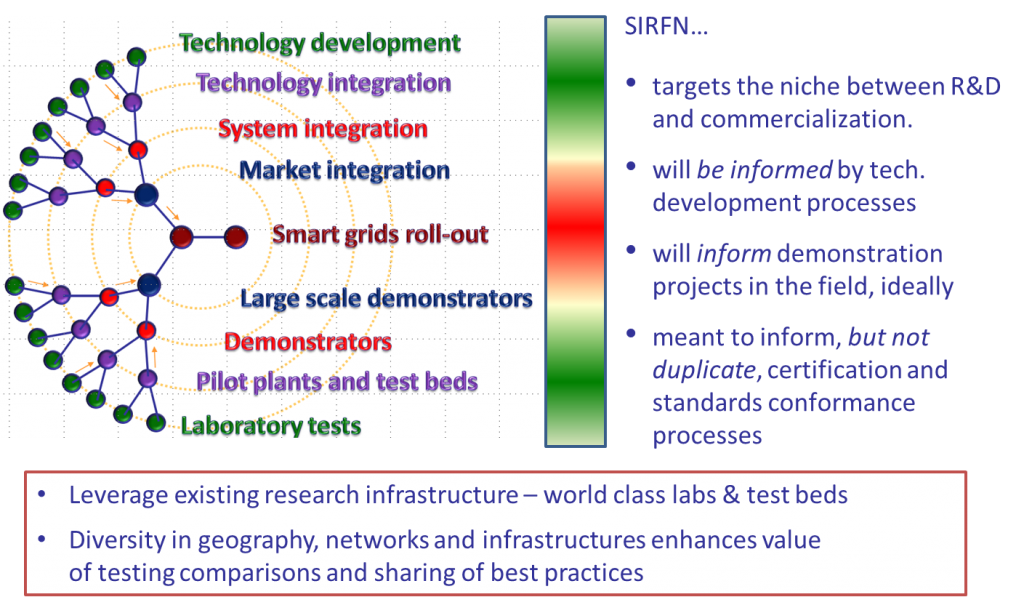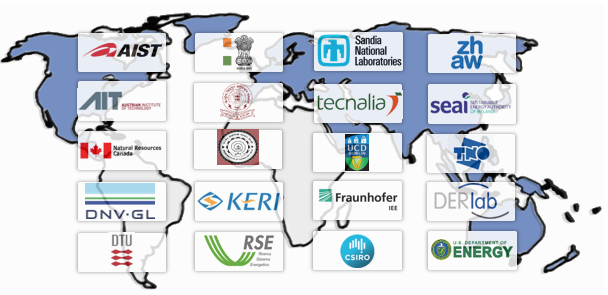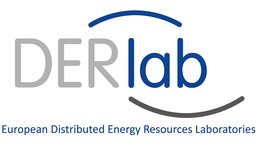International Energy Agency (IEA), Implementing Agreement for a Cooperative Programme on Smart Grids (ISGAN) was launched as the International Smart Grid Action Network at the first Clean Energy Ministerial (CEM). It creates a mechanism for multilateral government-to-government collaboration to advance the development and deployment of smarter electric grid technologies, practices, and systems and to promote adoption of related enabling government policies.
ISGAN Working Group 5, Smart Grid International Research Facility Network (SIRFN) gives the participating countries the ability to evaluate pre-competitive technologies and systems approaches in a wide range of Smart Grids implementation use cases and geographies using common testing procedures. Research within each individual member country will derive the value of the unique capabilities and environments of the other partner nations. Data from these tests will be made publicly available to the Smart Grids community to accelerate the development of Smart Grids technologies and systems, and enabling policies.

A key to advancing the deployment of smarter, cleaner electric grids is the development and validation of technologies, protocols, standards, and systems that can function effectively in a variety of geographies and grid environments. To support this development, SIRFN provides a network of world-class smart grid researchers and test-bed facilities, as well as relevant projects in the field, among countries participating in the Implementing Agreement for a Co-operative Programme on Smart Grids (ISGAN). The establishment of strong collaborative testing and evaluation capabilities that can be leveraged by the international community to be a central enabler to the design and implementation of smart grids.
SIRFN builds a framework for proposing, selecting and implementing projects that matches evaluation needs with testing capabilities and shares non-proprietary results for the improvement of smart grid technologies, protocols, and standards. SIRFN gives participating countries the ability to jointly evaluate selected pre-competitive technologies, protocols and systems in a wide range of smart grid use cases and geographies using common testing procedures. SIRFN’s work also includes assessment and validation of the test procedures themselves.
Researchers and test-bed facilities participate in SIRFN based on their complementary capabilities in the laboratory or the field to conduct specialized, controlled simulations and evaluations of integrated smart grid technologies and protocols across areas such as distributed and renewable energy integration, energy storage systems, advanced distribution management, advanced metering infrastructure, cyber security, and related applications. In this way, research within each individual participating organization can draw value from the unique capabilities and environments of the other partners. Data from these testing activities are made available to all SIRFN participants to accelerate the development of smart grid technologies, protocols, standards and systems, as well as enabling policies.
Objectives
The first objective of SIRFN is to create and share a comprehensive knowledge-base of smart grid testing facilities, test beds and important demonstration projects that can be used by participants and potential users to compare and identify essential capabilities.
The second objective is to share information on current capabilities and work, including nonproprietary research results, best practices and methods, and existing joint efforts to improve and expand testing capabilities.
The third objective is to improve current smart grid testing and evaluation capabilities by identifying gaps and organizing and coordinating joint research and testing efforts to minimize duplicated efforts and make better use of existing expertise.
The final objective is to create a framework for helping users and SIRFN facilities propose and implement projects involving smart grid testing by matching evaluation needs with testing capabilities and then creating a framework for all SIRFN participants and stakeholders to gain from sharing nonproprietary results, advice and assistance.
Scope of work
SIRFN maintains a flexible portfolio based on its participants’ interests. It is currently focused on collaborative work in four key areas:
 |
SIRFN participants will consider additional topics as opportunities arise.

